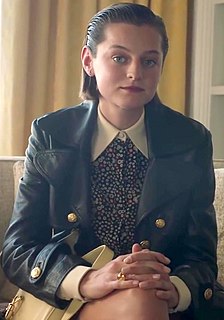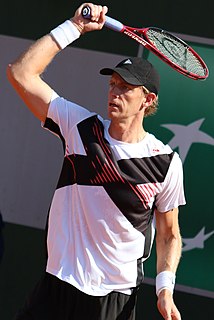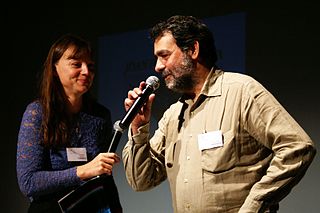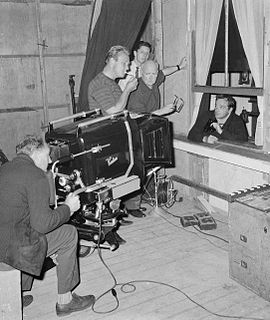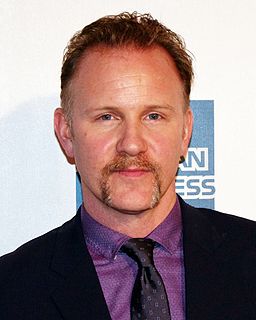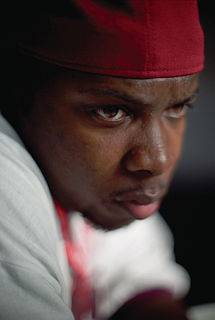A Quote by Emma Corrin
I only watched the documentary 'Diana: In Her Own Words,' which is now on Netflix. I didn't watch another documentary. I don't think I would have got the part without it.
Related Quotes
There is a documentary element in my films, a very strong documentary element, but by documentary element, I mean an element that's out of control, that's not controlled by me. And that element is the words, the language that people use, what they say in an interview. They're not written, not rehearsed. It's spontaneous, extemporaneous material. People
To the documentary director the appearance of things and people is only superficial. It is the meaning behind the thing and the significance underlying the person that occupy his attention... Documentary approach to cinema differs from that of story-film not in its disregard for craftsman-ship, but in the purpose to which that craftsmanship is put. Documentary is a trade just as carpentry or pot-making. The pot-maker makes pots, and the documentarian documentaries.
When you say documentary, you have to have a sophisticated ear to receive that word. It should be documentary style, because documentary is police photography of a scene and a murder ... that's a real document. You see, art is really useless, and a document has use. And therefore, art is never a document, but it can adopt that style. I do it. I'm called a documentary photographer. But that presupposes a quite subtle knowledge of this distinction.
It's difficult to make movies. For me it was easier, as a refugee in Switzerland, to make documentary films, because I didn't need a lot of money for it. The way I tell my story or my opinion would be very similar in both fiction and documentary forms. But I found I could speak more effectively to convey this brutal reality through documentary than I could through fiction.
When I hear the word 'documentary,' I don't think certain things should be left out. You've got to keep it 100 percent as much as you can, unless your group has a meeting beforehand and says, 'Yo - don't say this, 'cause boom, boom, boom.' Other than that, it's a documentary so let's document, you know what I mean?
When I hear the word "documentary," I don't think certain things should be left out. You've got to keep it 100 percent as much as you can, unless your group has a meeting beforehand and says, "Yo -- don't say this, 'cause boom, boom, boom." Other than that, it's a documentary so let's document, you know what I mean?
